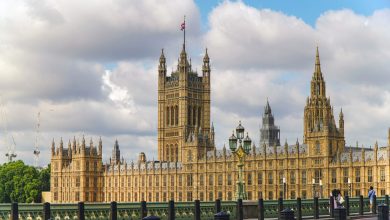UK households ‘to get £137 energy bills boost’ before the summer

As the energy price cap is set to rise by 6.9% from April 1, millions of households are bracing themselves for another hike in their energy bills. However, there is a glimmer of hope on the horizon. According to new estimates from Cornwall Insight, the energy price cap is predicted to decrease by 7% in July, which could result in a reduction of £137 in annual energy bills. This would bring the average annual energy bill down to £1,712, still significantly higher than pre-crisis levels, but a welcome respite for struggling households. The predicted decrease is due to shifts in wholesale prices, which have been affected by global events such as the potential ceasefire between Russia and Ukraine and warmer weather in Asia leading to lower gas demand.
Despite the projected drop in the price cap, energy bills will remain a significant burden on households, and the UK economy as a whole. The ongoing volatility in the energy market, driven by geopolitical tensions and the UK’s reliance on energy imports, means that energy prices could spike again at any moment. Dr. Craig Lowrey, Principal Consultant at Cornwall Insight, warns that while the downward trend in energy prices is positive news, households and the government must remain cautious due to the market’s instability. He stresses that significant long-term reforms in energy pricing are needed to bring about meaningful reductions in energy bills, rather than just relying on small adjustments to the price cap.
For households looking to sidestep the unpredictability of market rates, locking in fixed-rate energy tariffs could be a viable option. Some fixed-rate tariffs are currently cheaper than the upcoming price cap levels, and switching to one of these deals could result in significant savings. Elise Melville from Uswitch.com recommends that households consider switching, as those who have not switched in over a year are likely to be on a standard tariff and paying more than they need to for their energy. By choosing a competitive fixed-rate plan, households could save around £151 per year against the expected July price cap. The most cost-effective fixed tariff currently available is from Outfox the Market, which guarantees an annual charge of £1,605 for a typical dual-fuel household for a year.
The energy price cap has been a subject of concern for many households, particularly those on low incomes or with limited financial resilience. The cap is set to rise to an equivalent of £1,849 a year based on typical use for the 70% of households that are tied to these tariffs. While the predicted decrease in July is welcome news, it is essential to recognize that energy bills will remain high, and many households will continue to struggle to make ends meet. The UK government and Ofgem have tools at their disposal to mitigate the impact of high energy prices, such as introducing social tariffs for vulnerable households and a zero-standing charge cap. However, as Dr. Lowrey highlights, these tweaks to the current system are unlikely to deliver the reductions that people have been led to expect.
The volatility in the energy market is not just a concern for households but also for the UK economy as a whole. The high energy prices are having a ripple effect on businesses, industries, and the broader economy, making it challenging for companies to maintain profitability and competitiveness. The UK’s heavy reliance on energy imports, particularly gas, makes it vulnerable to global events and geopolitical tensions. The ongoing conflict in Ukraine and the potential for further disruptions to energy supplies have contributed to the uncertainty in the energy market. As the UK navigates these challenges, it is essential to prioritize energy security, invest in renewable energy sources, and develop a more sustainable and resilient energy system.
In conclusion, while the predicted decrease in the energy price cap in July is a positive development, it is crucial to recognize that energy bills will remain a significant challenge for many households. The ongoing volatility in the energy market, driven by geopolitical tensions and the UK’s reliance on energy imports, means that energy prices could spike again at any moment. Households can take steps to mitigate the impact of high energy prices by switching to fixed-rate tariffs, which could result in significant savings. However, the UK government and Ofgem must also take a more proactive approach to addressing the root causes of high energy prices, investing in renewable energy sources, and developing a more sustainable and resilient energy system. By working together, we can build a more secure and affordable energy future for all.








